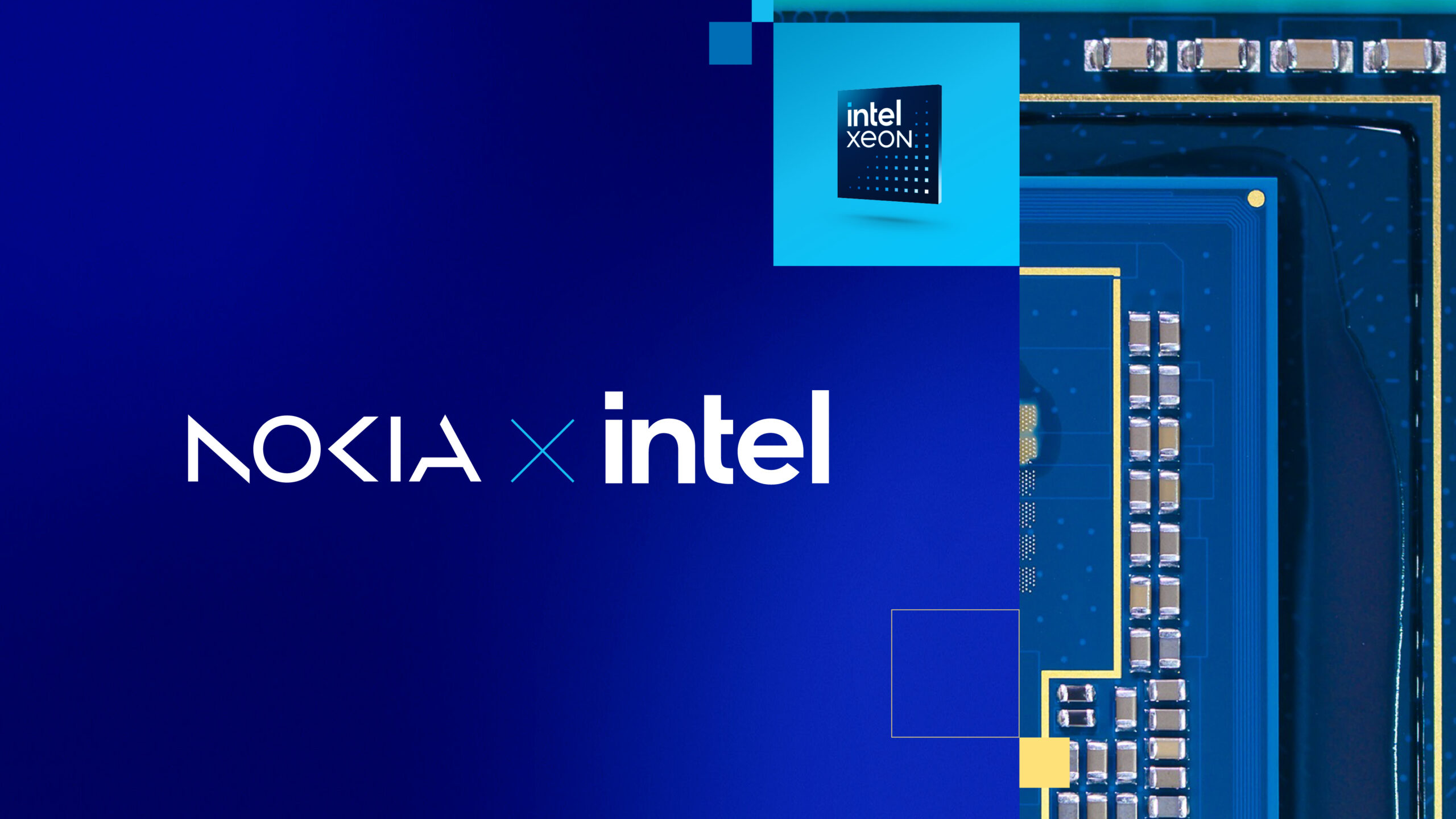Intel Unleashes 2.7x Performance per Rack Improvement for 5G Core

5G Vran Tower with light behind
Intel Infrastructure Power Manager software delivers an additional 30%-plus power savings.
What’s New: To answer network operators’ demands for energy-efficient scaling, Intel Corporation disclosed two major updates to drive footprint, power and total cost of ownership (TCO) savings across 5G core networks: the preview of its Intel® Xeon® next-gen processors, code-named Sierra Forest, with up to 288 Efficient-cores (E-cores), and the commercial availability of the Intel® Infrastructure Power Manager (IPM) software for 5G core.
“Communication service providers require greater infrastructure efficiency as 5G core networks continue to build out. With the majority of 5G core networks deployed on Intel Xeon processors today, Intel is uniquely positioned to address these efficiency challenges. By introducing new Efficient-cores to our roadmap and with the commercial adoption of our Intel Infrastructure Power Manager software, service providers can slash TCO while achieving unmatched performance and power savings across their networks.”
Why It Matters: Energy consumption and reduction of the infrastructure footprint remain top challenges that network operators face in building out their wireless 5G core network.
How It Works: Unveiled at Intel Innovation this past fall, the Intel Xeon processor roadmap is expanding to include E-core processors. E-cores will provide network operators with processors optimized for energy and TCO savings. Intel Xeon next-gen processors, code-named Sierra Forest, launching later this year will offer up to 288 cores and help operators recognize a 2.7x performance per rack1 improvement – an industry leading performance per rack for 5G Core workloads2.
The new processors will allow network operators to increase performance per rack, virtual CPUs (vCPUs) and performance per watt without significant changes to application software. Intel is collaborating closely with operators and 5G core software suppliers to deploy the new processors and Intel Infrastructure Power Manager software.
About CPU Innovations: Intel Xeon processors are the proven and most widely deployed server CPUs across the industry. Backed by an extensive ecosystem of innovative partners, Intel’s technological advancements and collaborations utilizing E-cores will help unleash proven power savings for a more sustainable future.
- BT Group has been a leader on climate action for over 30 years and, as the UK’s largest provider of fixed-line broadband and mobile services, making our networks more energy efficient is a key priority for us. Our deep collaboration with Intel continues to reap benefits in this area, and the prospects of the latest Xeon processor (Sierra Forest) and Intel Infrastructure Power Manager will significantly accelerate BT Group’s path to sustainability.
- Dell Technologies continues to deliver advanced servers in the telco industry by collaborating with Intel and optimizing its servers to meet the demands of operators around the world.
- Ericsson continues a long-standing and deep collaboration with Intel to innovate in the 5G core space. This year each company will have presentations in their booths that showcase the Intel Xeon Next-Gen processors running on Ericsson’s dual-mode 5G Core and Ericsson Cloud Infrastructure. Results show a 3.2x performance improvement and over 40% reduction in energy consumption3.
- Hewlett Packard Enterprise (HPE) and Intel are working together to maximize compute power efficiency and performance for 5G infrastructure on Xeon next-gen processors, code-named Sierra Forest.
- KDDI - Power efficiency and core count are key indicators for KDDI when building 5G networks. The power savings and performance per watt improvement of the future Xeon processor (codenamed Sierra Forest) is impressive. KDDI welcomes this new option to support their platform deployment.
- SK Telecom is evaluating the future Intel Xeon processor (codenamed Sierra Forest) and Intel Infrastructure Power Manager for 5G Core to accelerate their sustainability goals. Tests showcase breakthrough improvements in performance per watt for their next generation 5G Core network deployments.
- Telstra, in collaboration with Intel, is working to perform network evaluations of the Intel Xeon Next Gen processor (codenamed Sierra Forest) to deliver the world’s most energy-efficient, performant and sustainable 5G core network.
About Intel Infrastructure Power Manager: Launched last year at MWC 2023, the Intel Infrastructure Power Manager software for 5G core proved how operators can take advantage of the built-in telemetry of Intel Xeon processors and reduce CPU power usage without compromising key performance metrics including throughput, latency and packet drop. The software can be installed on existing and future Xeon-based network infrastructure.
About Reaching Net Zero Emissions: Energy consumption amounts to 20% to 40% of network operating expenses.4 It is critical for communication service providers (CoSPs) to holistically optimize end-to-end power utilization and the overall sustainability of their 5G networks. Integrating Intel Infrastructure Power Manager software into their 5G core software offerings allows operators to accelerate their sustainability goals and offset carbon dioxide emissions.
- Casa Systems will feature a demo with Dell Technologies and Telenor in its booth in Hall 2, #2G11 at MWC showcasing up to 50% power savings with Intel Infrastructure Power Manager running on 4th Gen Intel® Xeon® processors. Casa's 5G core integrated with Intel IPM is now commercially available.
- NEC ensures the energy efficiency of UPF by using Intel® Infrastructure Power Manager, enabling the offset of increasing power consumption for carbon neutrality. This achievement helps improve the performance of mobile network traffic processing by leaps and bounds, as well as contribute to lower power consumption and costs.
- Nokia continues its deep and broad collaboration with Intel, which includes delivering compelling solutions for energy-efficient and sustainable core network infrastructure. With integrated Intel IPM software for 5G core, Nokia has validated a 40%5 reduction in CPU power levels with zero packet loss when testing 5G user and control plane functions running on HPE ProLiant DL360 Gen 11 servers featuring Intel Xeon processors. Nokia’s results with IPM sit on top of any generation-to-generation energy efficiency improvements that come with Intel’s Xeon processors. Nokia will provide the first commercially available 5G core stack based on this capability in 2024.
- Orange is collaborating with Intel and ecosystem partners like Nokia to significantly reduce the runtime power consumption of its network function infrastructure. By leveraging the Intel Infrastructure Power Management in the network and by collaborating on initiatives like the #Sylva project, the path to increased energy efficiency and lower operating costs is accelerating.
- Samsung partnered with SK Telecom to launch a lab trial featuring Intel IPM software for user plane. Current lab trials are measuring over 27% CPU power savings without compromising throughput, latency or packet drop6. SK Telecom projects energy savings may exceed $10 million while accelerating progress toward net-zero targets by offsetting thousands of metric tons of carbon emissions. Samsung indicates that its 5G Core software utilizing Intel’s new processors will become commercially available in 2H 2024.
- ZTE continues to collaborate with Intel to assist operators to drive down power costs and total cost of ownership of network infrastructure. By using the Intel Infrastructure Power Manager integrated with the ZTE 5G Common Core Solution, operators will gain the performance and efficiency to meet their requirements.
What End Customers Can Do Next: Customers may visit the Intel Booth at MWC (Hall 3, Booth 3E31) to see demonstrations of the Intel Xeon next-gen processors, code-named Sierra Forest, and they may work with 5G core network function software vendors to learn more about the Intel Infrastructure Power Manager.
More Context: Intel Brings AI Everywhere Across Network, Edge, Enterprise | Intel Announces New Edge Platform for Scaling AI Applications | Intel at MWC Barcelona 2024 (Press Kit)
The Small Print
1 Based on estimated architectural projections as of Feb. 14, 2024, vs. prior-generation platforms as of 2021. Your results may vary.
2Based on Intel analysis and publicly available data as of Feb. 20, 2024.
3Based on Ericsson testing and MWC 2024 press announcement for 5G core Feb. 26, 2024.
4 Ref: GSMA Intelligence: A blueprint for green networks, October 2022.
5 Nokia MWC 2024 Press Release, Feb. 21, 2024.
6 SK Telecom Press Release, Feb. 16, 2023.
Intel does not control or audit third party data. You should consult other sources to evaluate accuracy.
Intel is committed to the continued development of more sustainable products, processes and supply chain as we strive to prioritize greenhouse gas reduction and improve our global environmental impact. Where applicable, environmental attributes of a product family or specific SKU will be stated with specificity. Refer to the 2022 Corporate Responsibility Report for further information.



